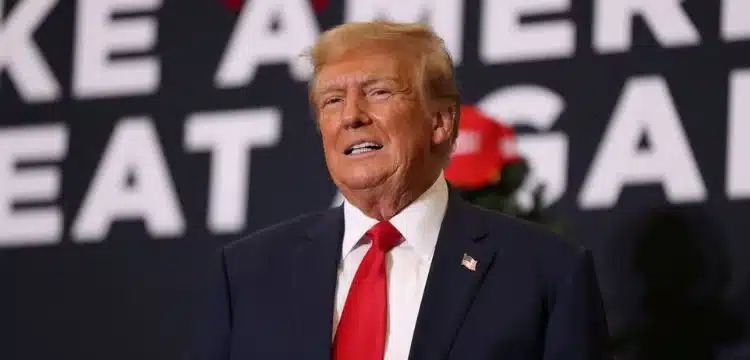[vc_row][vc_column][vc_column_text dp_text_size=”size-4″]Unanimously rejecting a state court decision that could have prevented him from being on the ballot due to accusations of insurrection, the US Supreme Court cleared a potential obstacle to Donald Trump’s quest to reclaim the presidency on Monday.
The court’s decision in favor of the former president came on the eve of the Super Tuesday primaries, which are anticipated to solidify Trump’s path to securing the Republican nomination for the November showdown against President Joe Biden.
Read more: Western Allies Condemn Trump For Suggesting No NATO Defense
This ruling holds significant weight, marking the most crucial election case heard by the court since it intervened in the Florida vote recount in 2000, ultimately determining Republican George W. Bush as the winner over Democrat Al Gore.
At the heart of the matter was the question of whether Trump could be disqualified from appearing on the Republican presidential primary ballot in Colorado due to his alleged involvement in the insurrection of January 6, 2021 – the attack on the US Capitol by his supporters.
In a unanimous 9-0 decision, the conservative-majority court declared that the judgment of the Colorado Supreme Court could not be upheld, thereby allowing 77-year-old Trump, the leading Republican contender for the White House, to be included on the state’s primary ballot.
The case originated from a December ruling by the Colorado Supreme Court, which, citing the 14th Amendment to the Constitution, argued that Trump should be excluded from the ballot because of his role in the January 6 assault on Congress.
Section 3 of the 14th Amendment prohibits individuals engaged in “insurrection or rebellion” after pledging to support and defend the Constitution from holding public office. However, during arguments last month, both conservative and liberal justices on the US Supreme Court expressed reservations about allowing individual states to determine which candidates can participate in the presidential ballot.
In its Monday ruling, the Supreme Court emphasized that the responsibility for enforcing Section 3 against federal officeholders and candidates lies with Congress and not the individual states.[/vc_column_text][/vc_column][/vc_row]











